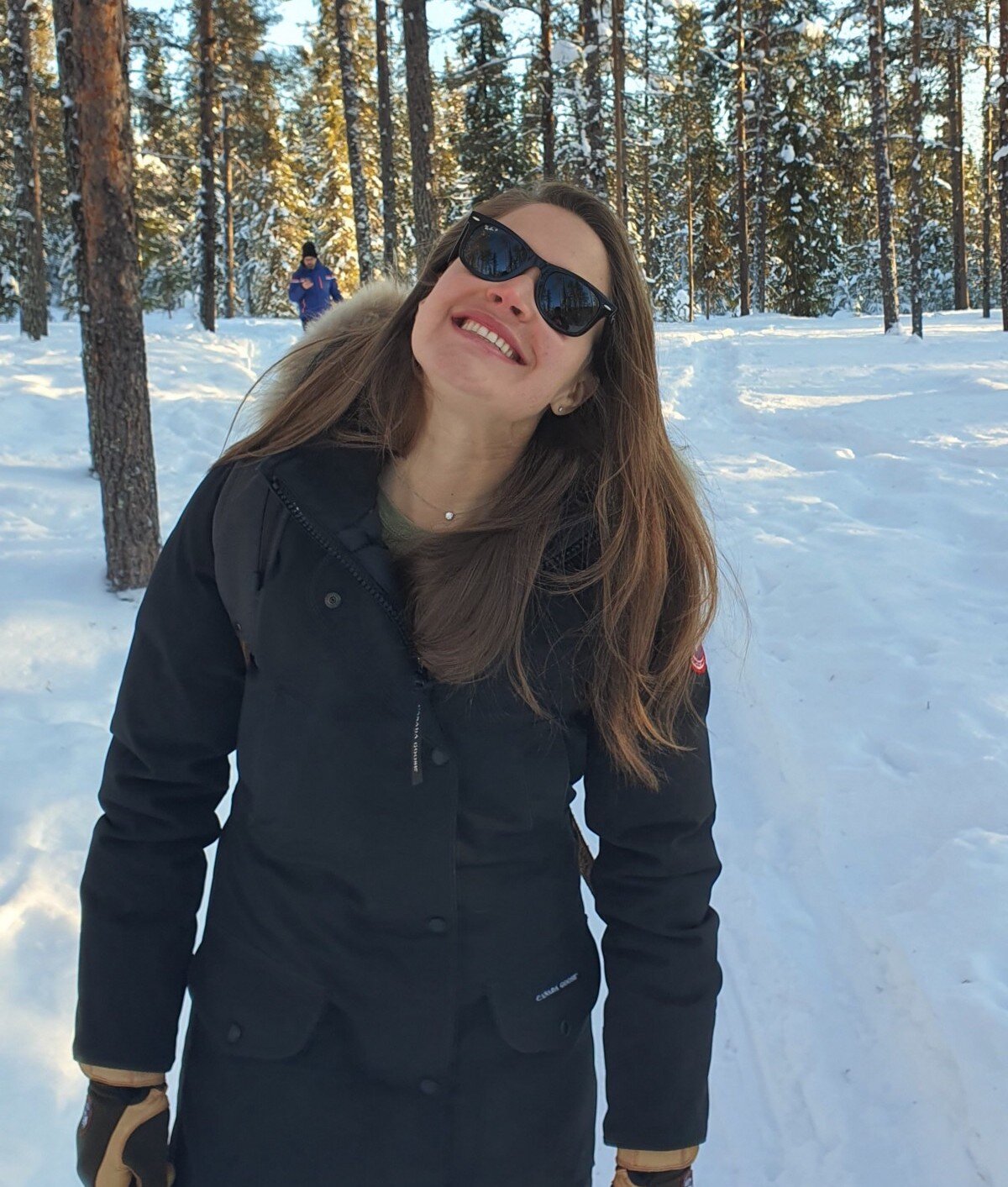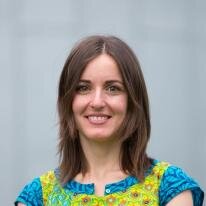Shubhangi Karmakar (she/they), 23, is completing their medical degree in Trinity College Dublin after an intercalated MSc. in Molecular Medicine, specializing in genomics and neuropsychiatric disorders. Their own research lies in neurodevelopment, neuropsychiatry, and pediatric and adult intensive care.
They are the Policy Lead of “Who Helps The Helpers: A National Student-Led Policy on Supporting Medical Students with Disabilities, Mental Illness and Chronic Illness”, as a Vice President of the Association of Medical Students Ireland.
This builds on longstanding editorial experience as General Manager of the Trinity Student Scientific Review in 2019/2020, Healthcare and Design Editor of both the Trinity Postgraduate Review in 2018/2019, and the Trinity Student Medical Journal in 2017/2018.
They are profiled as a future-shaping leader in Irish and global science; as a “genius of science and engineering”; and as a leader in Disability, Ethnic and Gender Diversity in academia, medicine and society by the New York Times, Irish Times, and Silicon Republic, among others. They were awarded “Woman of the Year” by the Lord Mayor of Dublin and nominated for JCI’s Ten Outstanding Young People in the category of Humanitarian and Voluntary Leadership in 2019.
Finally, they are a freelance content contributor across national and international media platforms, such as BBC investigative journalism, IMAGE publications, Irish Tatler, the Sunday Business Post, and GCN, to highlight intersectionality and accessibility across professional, political and personal communities.
1. Where’s your hometown?
Dublin, Ireland
2. How did you get into STEM?
While I enjoyed the sciences at school — I think it would have been fair to say I enjoyed everything, and then some — particular teaching experiences ruined the sciences for me at various points, chiefly because my inability to focus and point-blank refusal to conduct what I felt were “obvious and, therefore, boring repetitive exercises” didn’t work so well in a classroom-homework setting. (I would only realize at the age of 22 that these may have been the early gifts of ADHD.)
At the same time, I got drawn into teaching myself more languages and going outside of school to read psychology, so by the time I came to deciding on University, I think I was far more easily persuaded into reading something more human-focused, more malleable, and more empathetic than how I felt about STEM.
However, circumstances were such, that with my mother being a clinician, I entered a reluctant agreement with my parents to at least give studying to be a physician a try, and it’s been a remarkable experience.
3. What is a piece of advice that you have found especially useful?
From one of the best guides in my life, my therapist on and off for 5 years now, I got the advice to never compromise on myself and valuing my own work, time, and needs.
I’ve been notoriously poor at setting aside “me time” all my life, perhaps because I never seek out solitude and quietude. I’d much rather be helping someone build something, review something, or look after themselves any time of night or day than know what to do with myself and 5 minutes of silence and rest! Because of this, for a long time I also undervalued my time and the work I produced, because “I have to do something anyway”. This was damaging and landed me in unbalanced, exploitative dynamics that happen to many young creatives, advocates, and D&I consultants around the world.
Over the last year, learning how to distinguish between giving myself to people for support and giving away all of myself for people to use has allowed me to set better boundaries and standards for how I’m treated. I’m creating more professional relationships where people realize they aren’t giving me opportunities as a favor but that I’m adding value to their organization or events with my contribution and deserve to be treated as such. I’ve found this to be highly useful.
4. What’s a challenge you’ve faced, and how did you deal with it?
I think a huge challenge for me was getting settled into the study of medicine. I was so scared after my experiences with STEM in school, having moved across several countries with various teaching paces. Britain’s pace was particularly dire and repetitive, so moving to Ireland alone, I knew nothing about the place other than the fact that I wouldn’t thrive in an unstimulating environment.
I didn’t just need to work around structure, but I needed to work around my own neurodiversity that I didn’t even know about until now, five years in. However, I think I’ve made myself proud with how resourceful I’ve been in keeping my fear at bay. I’ve made myself very much at home in the essence of medicine over the years, because I love the scope for continuous learning, communication, empathy, and service of others in and outside of a clinical context.
Where I didn’t find a home, I’ve carved out my own path. From public health advocacy and running a philanthropic enterprise to policy writing and academic editorship; from undertaking research on neurodevelopment and niche genomics and clinical psychiatry to working with Pride in STEM to diversify academia; from data and AI journalism to programming in the Science Gallery network on creating accessible, artistic scicomm, I’ve tried it all and keep doing it every day!
I often say I do anything to keep me busy enough so I don’t get bored, and it’s often a simplistic answer to not have my experience of neurodiversity in academia writ large, but it’s also very true, and I love how diversified my learning of people, not in health or sickness, but just as people, has become through it.
5. What’s something you’ve done that you’re really proud of?
I’m proud of whenever I’ve had the occasion to share skills, experience, and opportunities with others who’ve come from a paucity of all of those.
I’ve delighted in honing my voice and identity in recent years, and I love when I can use it to educate and learn with people. Whereas I grew up hating my “difficult” name, the way I sounded, and the way I looked because I traveled a lot and never belonged, now I think I can finally demand that people respect my name when they use it and respect me when they solicit my insights.
Whether it’s giving public talks, or carving out a space in journalism, working up the ranks in academic editorship, or even skill-sharing in makerspaces, I’ve created platforms for my voice uncompromisingly, and that’s often been lonely but rewarding.
However, finally reaching a point where I am able to only accept and grow platforms that I can recommend to other people from marginalized communities, other people with remarkable and unique insights, to shine in the coming years long after my own voice is gone has been a point of pride for me.
6. What are you most excited about right now, in or outside of STEM?
Oooh, one of each!
STEM: I’m always liable to forget this, because I genuinely hated reading about immunology, but I do LOVE infectious diseases, so the sheer volume of preprint data on COVID-19, how researchers are assimilating, and how academic hierarchies are shifting and bringing together the world’s best minds to address a period of crisis, it’s really filled my heart with joy and pride.
Yes, I’m probably queen of the nerds.
Outside: erm… writing! Definitely. My neurodiversity means my brain is “on” to about a million things and simultaneously “off” to all those things, whichever is the less convenient option at any given time, and writing is definitely one of them.
I’m slowly working on a non-fiction essay manuscript and a particular fiction that’s been rolling around my brain for some time, so daydreaming about or even just scribbling some notes for those whenever the inspiration strikes is always exciting! Meanwhile, keeping updated and writing regular bits of journalism always helps me switch off the regular brain and decompress.
7. What is your favorite source of inspiration?
“At the end of the day, no failure is fatal and no success is final, and in the great scheme of the universe, every mark and mistake will fall to entropy anyway.”
I take a lot of inspiration and comfort in the idea of every choice we make just being random reassemblings and disassemblings of a fundamental chaos, like we’re all just slightly over-informed kids playing with slightly over-complex LEGO’s.
8. What is your favorite book?
Too many — FAR too many! Let me subvert this question and recommend an old short mockumentary a writer friend showed me the other day: Alternative 3.




















